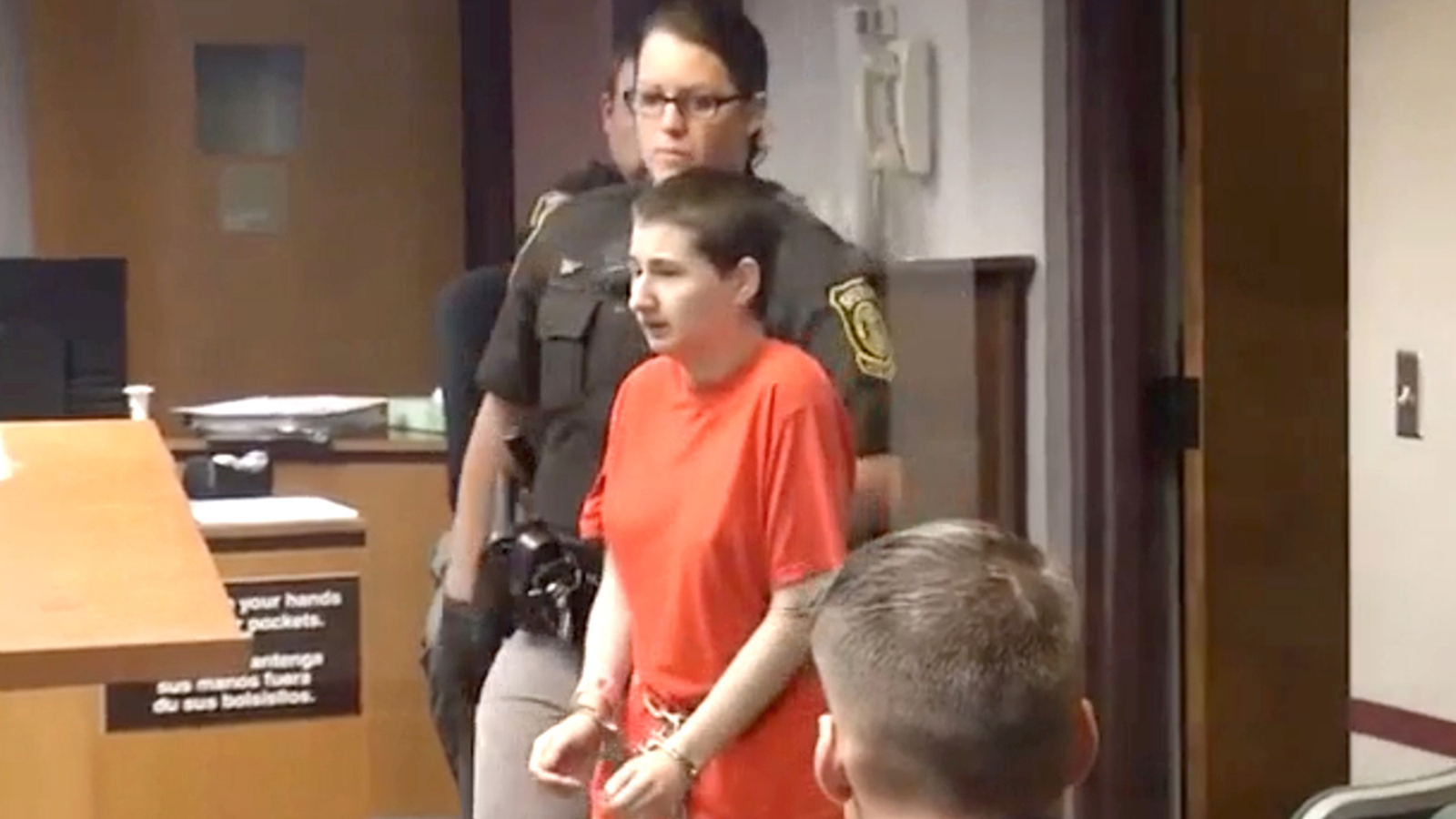Gypsy Rose Blanchard: Release, Sentence & Aftermath - Updates
Could a lifetime of manipulation and abuse truly justify a crime that shocked the nation? Gypsy Rose Blanchard's release from prison in December 2023, after serving eight years for her role in her mother's murder, has reignited a complex and often uncomfortable debate about justice, victimhood, and the insidious nature of familial control.
At 3:30 a.m., on a chilly December morning, Gypsy Rose Blanchard walked out of the Chillicothe Correctional Center. The world, or at least the portion of it that had followed her case with morbid fascination, waited with bated breath. Her story, once a lurid headline, had become a cultural touchstone, a cautionary tale, and a source of endless speculation. She had been sentenced to ten years in 2016 for her part in the slaying of her mother, Dee Dee Blanchard. Now, after serving 85% of her sentence, she was free, a parolee navigating a world vastly different from the one she had left behind.
| Category | Details |
|---|---|
| Full Name | Gypsy Rose Blanchard |
| Age (as of Release) | 32 years old |
| Birth Date | January 2nd, 1991 |
| Place of Release | Chillicothe Correctional Center, Missouri |
| Initial Sentence | 10 years |
| Conviction | Second-degree murder (role in the death of her mother, Dee Dee Blanchard) |
| Time Served | Approximately 8 years (85% of her sentence) |
| Release Date | December 2023 |
| Parole Terms | Specifics not widely publicized, but standard parole conditions apply |
| Notable Relationships | Mother: Dee Dee Blanchard (deceased), Boyfriend: Nicholas Godejohn (co-defendant) |
| Media Appearances Post-Release | Magazine cover, social media presence, forthcoming book, possible documentary projects |
| Documentary and Series | The case inspired the HBO documentary "Mommy Dead and Dearest" and the Hulu miniseries "The Act" |
| Reference | Oxygen.com |
The details of Gypsy Rose's life, especially the years leading up to the tragic events, are well-documented. Dee Dee Blanchard, her mother, was, by all accounts, a master manipulator. She subjected Gypsy Rose to years of medical abuse, fabricating illnesses, and subjecting her daughter to unnecessary medical procedures. This behavior is consistent with Munchausen syndrome by proxy, a psychological disorder where a caregiver fabricates or induces illness in a person under their care. Gypsy Rose was isolated from the world, kept perpetually childlike, and convinced she was seriously ill. The manipulation was so effective that it successfully fooled medical professionals, social workers, and the general public for years. The extent of this deception only truly began to unravel after the murder.
- Carlos Vives Unveiling The Life Music Of The Colombian Star
- Unveiling The Power Of The Ancients In Contemporary Forms
The murder itself was a brutal act. Gypsy Rose, with the help of her then-boyfriend, Nicholas Godejohn, orchestrated Dee Dee's death. Godejohn was convicted of first-degree murder and received a life sentence. The details of the crime, the planning, the execution, are difficult to read, yet they are fundamental to understanding the context of Gypsy Rose's actions. Was it premeditation? Or desperation? A desperate cry for freedom from a life that had become a gilded cage?
The court heard evidence of years of abuse, both physical and psychological. The abuse included the denial of food and the withholding of medication. This abuse was so systematic and pervasive that it ultimately led Gypsy to believe there was no way out, and she had to go through drastic measures to free herself from the situation. The trial provided a window into this world of abuse. This is where the complex questions begin. Was she a victim driven to commit an unthinkable act? Or a willing participant in a heinous crime? The legal system, with its black-and-white pronouncements, struggled to adequately address the shades of gray in this devastating case.
The case garnered widespread attention, inspiring an HBO documentary and a Hulu miniseries, demonstrating the public's intense interest in the story. The media coverage played a huge role in shaping the narrative and influencing public perception. Some viewed Gypsy Rose as a victim, manipulated and controlled by her mother. Others saw her as an active participant in a horrific crime, regardless of the circumstances. This division of opinion reflects the difficulty of simplifying a case where both victimhood and culpability are interwoven.
- Subaru Commercials Unveiling Ads Actresses More Insights
- Nancy Drew Quotes Unforgettable Lines Adventures
After serving 85% of her sentence, as mandated by Missouri state law, Gypsy Rose was deemed eligible for parole. The parole board weighed the nature of the crime, her behavior in prison, and the potential risk to the community. They ultimately decided to grant her release. This decision sparked immediate controversy. The public discourse continues to be filled with debates on whether her sentence was sufficient. Those supporting her release emphasized the years of abuse she had suffered. Detractors focused on the taking of a human life, arguing that no matter the circumstances, the act itself was irredeemable.
The social media floodgates opened almost immediately after her release. Just days after leaving prison, Gypsy Rose was an internet sensation. She quickly amassed millions of followers on platforms like Instagram and TikTok. She appeared on the cover of a magazine and began teasing a forthcoming book that promised to share her story in her own words. This immediate embrace by the public is another layer of complexity. Is this a genuine outpouring of empathy? Or is it another form of exploitation, capitalizing on a tragedy?
Nicholas Godejohn, the person who acted as the instrument in the crime, received a harsher sentence, a life sentence for his role in the murder. The disparity in sentencing, and the differing legal consequences, further complicate the case. It also makes the public debate that much more nuanced and complicated. It brings in questions of culpability, agency, and the nature of justice.
Gypsy Rose's story forces us to confront the fragility of families, the power of manipulation, and the blurry line between victim and perpetrator. It highlights the devastating effects of Munchausen syndrome by proxy and the lasting trauma inflicted by chronic abuse. It also asks us to consider the limitations of the legal system in addressing the complexities of human experience. The case raises difficult questions. What is the true definition of justice? How do we balance punishment with rehabilitation? How do we reconcile the need for accountability with the recognition of a victim's suffering? Her release is not an end but a beginning, a point of reflection. Her story will undoubtedly continue to generate discussion and debate, forcing us to confront our own biases and beliefs. The future of Gypsy Rose Blanchard is unwritten. Whether she will find peace, redemption, or further challenges remains to be seen. One thing is certain. Her story will continue to fascinate and challenge us for years to come.



Detail Author:
- Name : Corene McDermott
- Username : hamill.leopoldo
- Email : leffler.wiley@schimmel.com
- Birthdate : 2006-08-26
- Address : 335 Gerlach Ports Jenkinsfort, OH 10084
- Phone : 813.327.2095
- Company : Schoen LLC
- Job : Continuous Mining Machine Operator
- Bio : Magnam deserunt omnis sit reprehenderit beatae. Modi qui odit facilis minus amet. Repudiandae et impedit in asperiores perferendis.
Socials
instagram:
- url : https://instagram.com/wellington_gaylord
- username : wellington_gaylord
- bio : Hic rerum soluta repellendus. Eius natus voluptas voluptas aut. At pariatur enim optio et animi.
- followers : 4567
- following : 588
linkedin:
- url : https://linkedin.com/in/gaylord1971
- username : gaylord1971
- bio : Ut sit eos odio.
- followers : 566
- following : 973
facebook:
- url : https://facebook.com/gaylordw
- username : gaylordw
- bio : Assumenda odit omnis reiciendis deserunt nam.
- followers : 3762
- following : 376